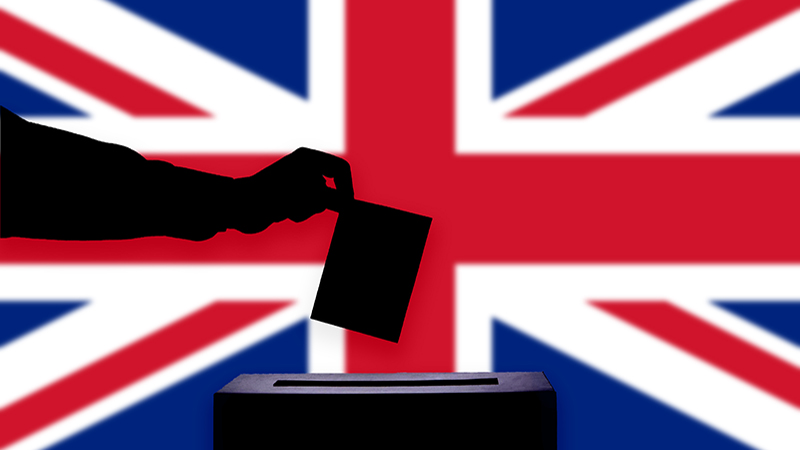Monday 1 July
- UK mortgage applications
- Nationwide UK house price index
- Purchasing managers’ indices (PMIs) for manufacturing from Asia, Europe, the UK and US
- Japanese Tankan business survey
Tuesday 2 July
- British Retail Consortium shop price survey
- EU unemployment
- EU inflation
- In Europe, quarterly results from Sodexo
- US employment data
Throughout the first week of July, the US will release data on jobs, wages, and unemployment as markets try to anticipate a rate cut from the Fed.
If employment shows weakness in the US, markets believe this could nudge the US in the direction of a rate cut in order to boost company earnings as well as downgrade the appeal of cash investments. The rate is currently set at 5.5%, where it has been since last summer.
Russ Mould, AJ Bell investment director, Danni Hewson, AJ Bell head of financial analysis and Dan Coatsworth, AJ Bell investment analyst, said: “There is no guarantee this script plays out, even if it is consensus thinking. US equities are already trading at or near record highs, at least based on some indices, so additional profits growth and cheaper money are already priced in, at least to some degree.
“Moreover, markets began 2024 expecting six, one-quarter point rate cuts from the Fed, with the first one in March, and stubborn inflation and a strong jobs market has prompted some back-pedalling, to the point where consensus is now looking for just two cuts down to 5.00% by Christmas, with the first coming in September, according to the CME Fedwatch service.”
On Tuesday, the US will release the Job Openings and Labour Turnover Survey, which in April read as 8.1m vacancies. Friday will bring the official government survey of job additions and the unemployment rate and wage growth. In May, the US added 272,000 jobs. However, the employment rate is rising, now at 4% versus 3.4% in 2023.
“If anything, seasoned Fed watchers let the financial markets do the hard work and use them as a guide to when the US central bank may act – and the two-year US treasury yield has an uncanny habit of moving six to nine months before the Fed does,” the AJ Bell team said.
“Right now, it stands at 4.82%, to price in three cuts in the next 24 months and, in effect, decent growth and slightly sticky inflation.”
Wednesday 3 July
- Full-year results from Baltic Classifieds
- Purchasing managers’ indices (PMIs) for services industries from Asia, Europe, the UK and USA
- US factory orders
- US car sales
- US oil inventories
- In the US, quarterly results from Constellation Brands
Thursday 4 July
- Trading update from Victrex
- Purchasing managers’ indices (PMIs) for the UK construction industry
- In Asia, monthly sales figures from Taiwanese silicon chip foundry UMC
The UK will elect its next prime minister on Thursday, with the Labour Party led by Keir Starmer ahead in the polls.
The AJ Bell team noted that given the pattern of past elections, a change in leadership could be positive for UK markets.
“A study of all sixteen of the General Elections since the inception of the FTSE All-Share in 1962 shows that the UK stock market is by no means frightened of a change in government and it may even welcome it,” Mould, Hewson, and Coatsworth said.
“On average, the FTSE All-Share has recorded a double-digit percentage gain in the first year after an election which sees one Prime Minister ejected from office and another, new one ushered into it. There are also greater average gains when a government changes relative to when it remains the same.”
On average since 1962, the UK equity market has fared better under Conservative leadership. But in past elections, the AJ Bell team noted that inflation is a main impetus for change in leadership.
“For all that Rishi Sunak now feels able to claim the credit for a deceleration in the annual rate of inflation back to 2.0%, prices are still rising and not shrinking. Since Boris Johnson defeated Jeremy Corbin in December 2019, the retail price index is up by 32.4% and the consumer price index by 23.4%,” The AJ Bell team said.
“The UK average wage is up 27%, including bonuses, according to the ONS, but inflation may mean consumers are not feeling the benefit, especially as food prices, energy bills and mortgages are largely non-discretionary and increases here will be hurting many, especially those toward the lower end of the pay scale.”
Friday 5 July
- Halifax house price index in the UK
- Japanese wage growth
- German industrial production









